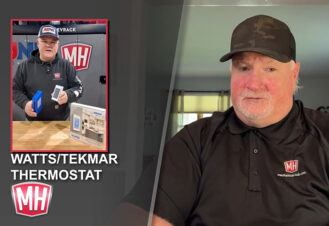Plumbers looking to branch out into the field of HVAC maintenance and installation need to learn specialized skills that go beyond piping and fixtures.
From mastering refrigeration systems to understanding airflow dynamics, each competency will build your ability to handle heating, cooling, and ventilation challenges confidently.
So, here are five essential skills that every plumber needs for a successful HVAC career.

1. Refrigeration System Knowledge
Understanding refrigeration systems (which you can learn at specialist educational establishments like The Refrigeration School) is foundational for HVAC work.
This involves knowing how refrigerants cycle through compressors, evaporators, and condensers to create cooling effects.
You also need to grasp pressure-temperature relationships in these systems, as they’re crucial for diagnosing performance issues or leaks.
Recognizing the components of different system types – split units or packaged systems – can help you install or maintain them efficiently.
A clear knowledge base lets you troubleshoot problems accurately and ensures compliance with regulations like safe refrigerant handling standards.
2. Electrical Troubleshooting Skills
HVAC systems rely heavily on electrical components. Knowing how to test circuits, locate faulty wiring, and handle control boards is critical for maintenance or repair.
Being familiar with reading schematics and using tools like multimeters can save time when diagnosing issues in thermostats, relays, or compressors.
Also, safety is key here. So, understanding voltage ratings and proper handling is crucial for preventing accidents during troubleshooting.
A strong grasp of these skills not only resolves system problems efficiently but also builds confidence in working around complex electrical setups.
3. Thermodynamics Understanding
Knowing how heat transfers, airflow moves, and energy exchanges are critical for designing efficient systems. After all, HVAC systems revolve around the principles of thermodynamics.
Understanding concepts like heat gain or loss helps you size equipment accurately.
Comprehending phase changes in refrigerants ensures better diagnostics during cooling failures.
This knowledge connects directly to practical work – like optimizing heating efficiency or troubleshooting uneven cooling zones.
By mastering thermodynamics basics, you can provide solutions that improve comfort while minimizing energy waste in homes and businesses alike.
4. Airflow and Ventilation Basics
Proper airflow is the backbone of HVAC performance. Without balanced ventilation, systems struggle to maintain consistent temperatures or manage air quality.
Recognizing how ductwork layout affects circulation helps you identify pressure imbalances or blockages. You’ll also need to measure airflow rates with tools like anemometers to ensure they meet system specifications.
Understanding ventilation basics aids in improving efficiency, controlling humidity levels, and addressing issues like uneven heating or cooling.
Strong expertise in this area ensures systems run smoothly while maximizing occupant comfort.
5. HVAC Diagnostic Techniques
Lastly, troubleshooting HVAC issues requires sharp diagnostic skills.
Systems can fail for many reasons, from refrigerant leaks to faulty sensors or airflow blockages.
A systematic approach helps narrow down the cause.
Using tools like pressure gauges, leak detectors, and infrared thermometers speeds up problem identification.
Knowing how to interpret error codes on modern systems also saves time during repairs.
Strong diagnostics ensure you fix problems accurately the first time, preventing repeat visits and building trust with clients through reliable service.




Join the conversation: